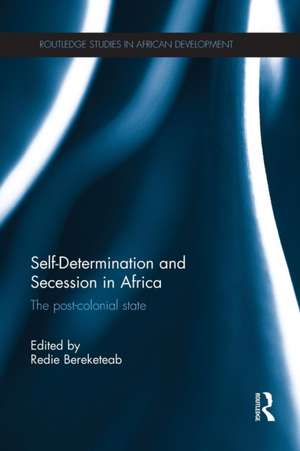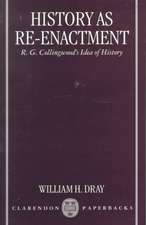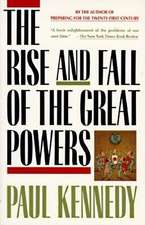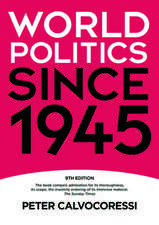Self-Determination and Secession in Africa: The Post-Colonial State: Routledge Studies in African Development
Editat de Redie Bereketeaben Limba Engleză Paperback – 3 mar 2016
The book covers all the major attempts at self-determination and secession on the continent, extensively analysing the geo-political, economic, security and ideological factors that determine the outcome of the quest for self-determination and secession. It reveals the lack of inherent clarity in international law, social science theories, OAU/AU Charter, UN Charters and international conventions concerning the topic.
This is a major contribution to the field and highly relevant for researchers and postgraduate students in African Studies, Development Studies, African Politics and History, and Anthropology.
| Toate formatele și edițiile | Preț | Express |
|---|---|---|
| Paperback (1) | 488.29 lei 43-57 zile | |
| Taylor & Francis – 3 mar 2016 | 488.29 lei 43-57 zile | |
| Hardback (1) | 1057.89 lei 43-57 zile | |
| Taylor & Francis – 8 aug 2014 | 1057.89 lei 43-57 zile |
Din seria Routledge Studies in African Development
-
 Preț: 348.21 lei
Preț: 348.21 lei -
 Preț: 284.45 lei
Preț: 284.45 lei -
 Preț: 318.10 lei
Preț: 318.10 lei -
 Preț: 238.37 lei
Preț: 238.37 lei - 14%
 Preț: 336.93 lei
Preț: 336.93 lei - 18%
 Preț: 1000.27 lei
Preț: 1000.27 lei -
 Preț: 390.80 lei
Preț: 390.80 lei -
 Preț: 386.00 lei
Preț: 386.00 lei - 18%
 Preț: 934.74 lei
Preț: 934.74 lei - 18%
 Preț: 1003.75 lei
Preț: 1003.75 lei - 18%
 Preț: 891.36 lei
Preț: 891.36 lei -
 Preț: 190.02 lei
Preț: 190.02 lei - 21%
 Preț: 267.77 lei
Preț: 267.77 lei - 9%
 Preț: 869.21 lei
Preț: 869.21 lei -
 Preț: 363.00 lei
Preț: 363.00 lei - 17%
 Preț: 258.50 lei
Preț: 258.50 lei -
 Preț: 443.65 lei
Preț: 443.65 lei -
 Preț: 479.63 lei
Preț: 479.63 lei - 18%
 Preț: 1054.71 lei
Preț: 1054.71 lei -
 Preț: 461.84 lei
Preț: 461.84 lei -
 Preț: 449.41 lei
Preț: 449.41 lei -
 Preț: 383.30 lei
Preț: 383.30 lei - 18%
 Preț: 1113.32 lei
Preț: 1113.32 lei - 19%
 Preț: 254.45 lei
Preț: 254.45 lei -
 Preț: 463.19 lei
Preț: 463.19 lei - 18%
 Preț: 997.11 lei
Preț: 997.11 lei - 21%
 Preț: 257.25 lei
Preț: 257.25 lei - 18%
 Preț: 1000.27 lei
Preț: 1000.27 lei -
 Preț: 199.82 lei
Preț: 199.82 lei - 18%
 Preț: 1000.61 lei
Preț: 1000.61 lei -
 Preț: 442.07 lei
Preț: 442.07 lei
Preț: 488.29 lei
Nou
Puncte Express: 732
Preț estimativ în valută:
93.46€ • 101.56$ • 78.56£
93.46€ • 101.56$ • 78.56£
Carte tipărită la comandă
Livrare economică 21 aprilie-05 mai
Preluare comenzi: 021 569.72.76
Specificații
ISBN-13: 9781138659735
ISBN-10: 1138659738
Pagini: 296
Dimensiuni: 156 x 234 x 16 mm
Greutate: 0.43 kg
Ediția:1
Editura: Taylor & Francis
Colecția Routledge
Seria Routledge Studies in African Development
Locul publicării:Oxford, United Kingdom
ISBN-10: 1138659738
Pagini: 296
Dimensiuni: 156 x 234 x 16 mm
Greutate: 0.43 kg
Ediția:1
Editura: Taylor & Francis
Colecția Routledge
Seria Routledge Studies in African Development
Locul publicării:Oxford, United Kingdom
Public țintă
PostgraduateCuprins
Part 1: Conceptions, International law and Charters 1. Self-determination and Secession: African Challenges 2. Acquisition of Autonomy: The Right of Self-Determination in International Law 3. The OAU Doctrine on Colonial Boundaries and Conflicts of Separation in the Horn of Africa Part 2: Non-Colonial Creation Successful Secession Case: South Sudan 4. Political History of Southern Sudan before Independence of the Sudan 5. Sudan First Civil War for Self-determination 6. Second Civil War Creation of the United "New Sudan" Part 3: Colonial Creation Unsuccessful Cases of Self-Determination: Somaliland and Zanzibar 7. Guests in our Houses: Somaliland and British Colonialism 8. Less and more than the Sum of Its Parts: The Failed Merger of Somaliland and Somalia and the Tragic Quest for ‘Greater Somalia’ 9. Identifying Challenges against Winning an International Recognition and its Prospects: The Case of Somaliland 10. The Zanzibar Secessionist Sentiments: Can regional integration theory provide insights into the phenomenon? Part 4: Identity Groups Claiming Secession that Failed 11. Why Katanga’s Quest for Self-determination and Secession Failed 12. Nigeria and the Biafran War of Secession 13. The Paradoxes of Secessionism among Tuarag in Northern Mali Part 5: Colonially Created, Annexed by Neighbouring Countries Cases 14. Namibia’s Negotiation to Independence 15. Eritrea a Colonial Creation: A Case of Aborted Decolonisation 16. The Arduous Quest of the Saharawi People for Self-Determination: The Complexities of Unachieved Decolonization
Descriere
The book is a comparative study of the prominent quest for self-determination and secessionism cases in Africa. It further examines the theoretical, international law, and charters of the United Nations and the Organisation of African Unity (OAU)/African Union (AU) stand on the issue of self-determination and secessionism. It explores whether self-determination and secessionism leads to peace, stability, development and democratisation in conflict-ridden societies. It extensively analyses factors such as geo-political, economic, security and ideological that determine the outcome of the quest for self-determination and secession.












